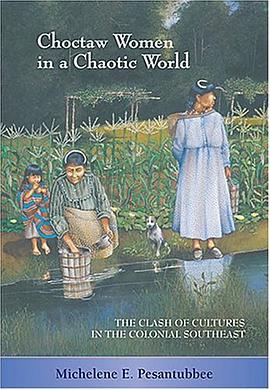

具体描述
Prior to European contact, the Choctaw's matrilineal society supported women's contributions in all areas of community life. Evidence of Choctaw women's participation in religious and political concerns, however, declined drastically early in the eighteenth century. Michelene Pesantubbee traces the changes in women's roles in Choctaw society from the late 1600s to the mid-1700s during the French colonial period in the Lower Mississippi Valley.Before the arrival of the French explorers, Choctaw women could earn recognition as "beloved," an esteemed designation that indicated sacred status. Pesantubbee relates the decline of women's status to the religious, economic, and military interests of the French colonial church and state. She focuses on the increased violence in the Southeast, the demise of the Green Corn ceremony, and the declining importance of the symbol of Corn Woman to explain changes in women's roles.Pesantubbee draws on oral history, religious practices, archaeology, mythology, and documentary sources to expand our understanding of the concept of "beloved woman." She examines the women's roles in Choctaw funeral traditions well into the nineteenth century as an example of the ways in which women continued to carry out beloved functions in the face of drastic changes in gender roles. As a Choctaw woman, Pesantubbee is especially sensitive to the absence of women from many tribal histories. By offering new ways to view this facet of Choctaw society, she provides insight into the dynamics of simultaneous change and continuity in a relatively short period of time.
作者简介
目录信息
读后感
评分
评分
评分
评分
用户评价
相关图书
本站所有内容均为互联网搜索引擎提供的公开搜索信息,本站不存储任何数据与内容,任何内容与数据均与本站无关,如有需要请联系相关搜索引擎包括但不限于百度,google,bing,sogou 等
© 2026 book.wenda123.org All Rights Reserved. 图书目录大全 版权所有




















